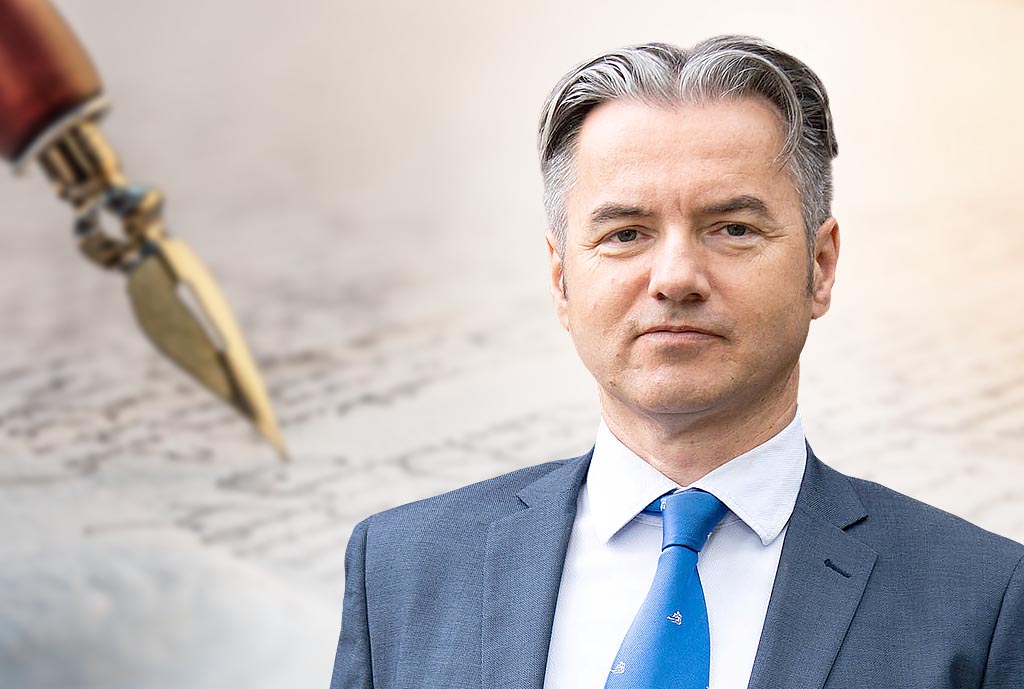By: Dr Metod Berlec
Support for Golob’s government has been declining for the third consecutive month, as indicated by a survey conducted by Mediana for POP TV. According to this survey, more than half of the respondents are opposing the government for the first time. Among the political parties, Janša’s SDS is in the first place, while support for Golob’s Gibanje Svoboda continues to decline. SDS would be chosen by 22 percent of respondents (down from 23.7 percent in October), and the largest government party by 13.4 percent (down from 18.6 percent in October). The Social Democrats (SD) remain in the third position, with the support of 8.4 percent of respondents (up from 7.4 percent in October). The Levica party has climbed to the fourth position, with an expected 3.9 percent (up from 3.4 percent in October), followed by the NSi at the fifth position with 3.8 percent (down from 5.3 percent in October).
Among the non-parliamentary parties, the survey detects support for the parties Resni.ca and SLS at two percent, and SNS at 1.8 percent. The Mediana poll has observed a significant increase in the number of undecided voters and those who would not vote for any party. It is evident that the government has squandered a significant portion of the credibility given to it by voters in the last elections. This is particularly noticeable with Prime Minister Robert Golob, who is now considered a “political corpse”, as they say, yet still clings to power, even though “unelected centres of power” from the background, led by the former party chief Milan Kučan, are actively seeking his replacement…
Due to the current political developments, political parties are already actively preparing for the European Parliament elections scheduled for early June 2024. There is a (minimal) possibility that preliminary parliamentary elections could coincide with the European elections. The Slovenian People’s Party, led by Marko Balažic, was quick to announce the head of its list for the European elections. Balažic made a politically savvy move by bringing in Peter Gregorčič, the former president of the programming board of Radiotelevision Slovenia, as the leader of the SLS list, pulling the party out of political oblivion. With continued consistent centre-right politics, there is a possibility that this non-parliamentary party could return to parliament in the upcoming parliamentary elections. However, NSi is increasingly jeopardising itself with its unprincipled, opportunistic, and transactional politics. While it was a fair and credible coalition partner during the third government led by Janez Janša, its alliance with the ruling left coalition is no longer paying off. This was demonstrated by the forced resignation of its former vice president, Valentin Hajdinjak, from the position of the CEO of DARS. With their unwise support for constitutional changes that will further solidify the dominance of the transitional left in the judiciary and constant attacks on the leader of SDS, Janez Janša, they are unfortunately playing the role of useful idiots for the transitional left. Truly, politically unwise.
The announcement of the entry of two new players into the (centre, right-centre) political arena is already causing a stir in the right-centre party political scene. Anže Logar with the Platform for Cooperation and Pavle Rupar with the Voice of Pensioners are the two new entrants. Last week, Logar took a new step towards an independent political path by resigning from the position of the President of the Council of SDS (Zvone Černač was unanimously elected by the Council of SDS to replace him). Despite this, Logar continues to be a member of the SDS parliamentary group. When he will take a completely independent path is not yet clear and will be revealed in the coming months. On the other hand, Pavle Rupar, in an interview in the previous issue of our magazine, decisively announced the establishment of a new party. In doing so, both Logar and Rupar will (sooner or later) largely target the voters of the existing three centre-right parties: SDS, NSi, and SLS. This means that five political parties will be competing for the votes of centre-right voters, posing a significant risk, as there is little chance that all five parties will surpass the parliamentary threshold. Therefore, there is a need to consider pre-election political cooperation, the consolidation of centre-right forces and parties, so that the votes do not go to waste, as they can tip the political balance. In recent months, Janša’s SDS has taken steps in this direction by incorporating the Kangler and Šrot lists into its ranks, thereby strengthening its membership. It has also extended an offer of cooperation to the SLS. However, for these new political entities to be a real added value, they would need to appeal to as many undecided centre voters as possible. Therefore, they should throw their political networks as much as possible towards the centre, especially in the case of Logar. For Rupar, the key will be efforts to secure higher pensions.

